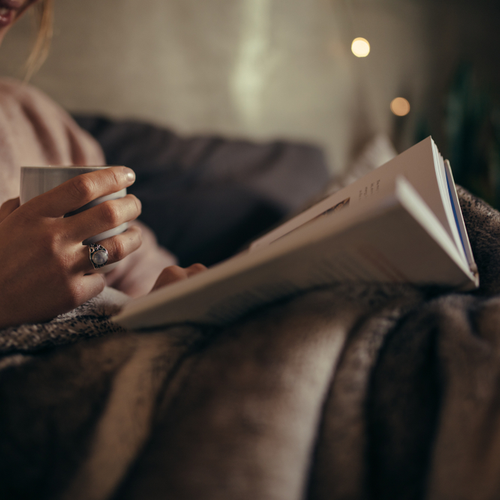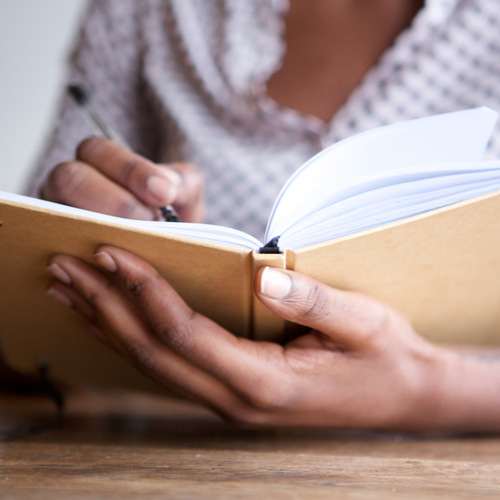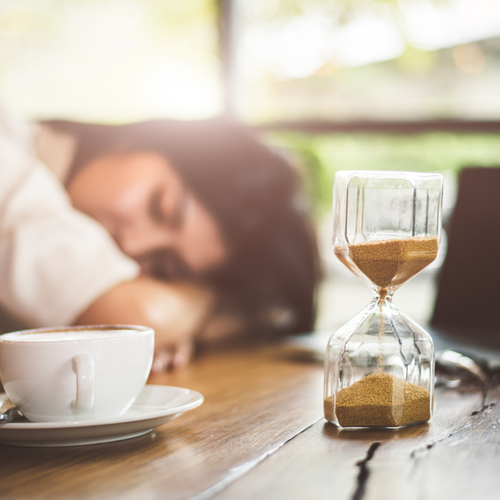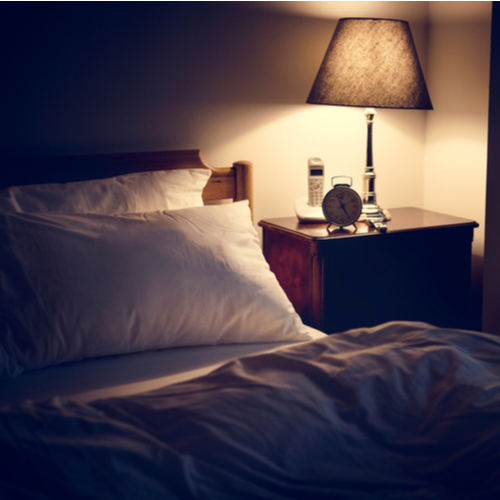There is no denying that getting a good night’s sleep not only leaves you feeling rested and ready for whatever the day throws at you, but it also has multiple health benefits including healing, weight loss and building a stronger immune system.
However, even after knowing the benefits, we still find ourselves typing the same question into Google: how to get a good night’s sleep?

Image: Jacob Lund, Shutterstock
1. Bed is for Sleep, Not Screens
Checking your phone before you go to bed stimulates the brain, so you become more active and feel more awake. This is because the blue light emitted by your mobile phone restrains the production of melatonin – the hormone that controls your sleep-wake cycle – and can trick your brain into thinking it needs to stay awake. Keeping your phone out of the bedroom overnight can help discourage you from checking it right before bed or during the night. As an alternative, you can read a book before bed. Reading allows your muscles to relax and slows down your breathing, leaving you feeling calmer. If you’re stuck on what to read, take your pick from one of these 10 best Australian books of 2021.

Image: mimagephotography, Shutterstock
2. Wind Down and Write Down any Worries
Try to resolve any worries before you hop into bed. You can write down any reminders or your to-do list and then set it aside for the next day. Writing down what you have accomplished that day, and what you need to do the next can give you a sense of focus. By mentally offloading any responsibilities before you go to bed, you are giving your brain permission to stop actively thinking about them before you go to sleep. Keep a small notepad and pen on your bedside table as a reminder to help you feel organised and ease any anxiety.

Image: MiniStocker, Shutterstock
3. Try Not to Nap
Sleeping during the day can confuse your internal clock, meaning that you may struggle to sleep at night. Long or irregular naps often leave people feeling groggy as they require you to wake up from a deeper sleep, and that’s why it can negatively impact your sleep quality and sleep duration later in the night. While short power naps can be beneficial at times, try to limit yourself to up to 30 minutes and avoid napping late in the day. To keep you from napping, why not occupy yourself with one of Australia’s 10 best delivered hobby subscription boxes for adults?

Image: Syda Productions, Shutterstock
4. Create a Regular Exercise Routine
There are so many benefits to exercising regularly and, in addition to improving the quality of your sleep, exercise can help to reduce your stress levels. In return, getting a good night’s sleep maximises your athletic performance. Exercise boosts the effect of natural sleep hormones, such as melatonin, and can help improve any symptoms of insomnia or sleep apnoea. It also increases the amount of time you spend in the deep, restorative stages of sleep. Physical activity can be stimulating as exercise increases the body’s adrenaline production, so it’s better to exercise earlier in the day. The more vigorously you exercise, the more powerful your sleep benefits will be. But even light exercise, like a quick 15 minute walk, can improve sleep quality.

Image: Rawpixel.com, Shutterstock
5. Create your Ideal Sleeping Environment
A peaceful bedtime routine sends a powerful message to your brain that it’s time to wind down and go to sleep. Small changes to your environment can make a big difference to the quality of your sleep. You should ideally have a quiet, dark room with comfortable bedding and good temperature control. One of the best things for sleep is to eliminate all possible light. That means turning off your lights and shutting the blinds or curtains before jumping into bed. It’s also a good idea to keep the noise down in your room as low as possible. If outside noise is beyond your control, playing soft and comforting music may help to muffle the sounds.
Getting enough sleep is one of the most important things you can do for your overall health and wellbeing. Sleeping well makes you feel more alert and energetic and allows you to concentrate harder and perform daily tasks to the best of your ability.
If you are still having trouble sleeping, it’s important to talk with your doctor or medical professional to find out what might be going on.
If you’re ready to catch more of those z’s, these 8 weird things will also make you sleep better. Sometimes if you snooze you lose, so protect your body with these 8 easy ways on how to boost your immune system!



Don’t lose your snooze – let these five easy tips help you to get a better night’s sleep, naturally.